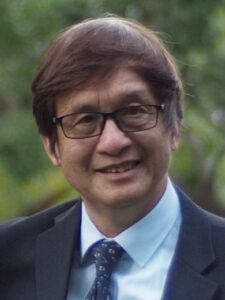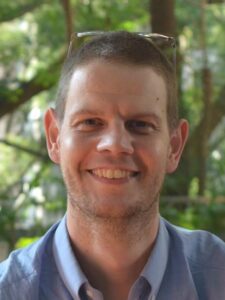The Future of Business in a Technological Age (5):
Un-commodifying the World
See Map and Directions.
Business and technology are powerful forces which have shaped – and continue to reshape – each other and the world in which we live. This series of five workshops brings together business leaders, technologists, and academics to consider, from a Christian perspective, the systemic issues facing business in light of technological advances, and the challenges and opportunities arising from these.
This final session will reflect on Neil Postman’s definition of commodification as “buying and selling a thing without reference to its meaning or context.” In light of this, we will consider how to re-insert meaning and context into business.
This talk aims to understand the relational order. How do we relate to God, to each other, and to the world around us? Business is often blind to relational factors. (If business exists to maximise profits, it fosters relationship only if that is a by-product of maximising profits.) Techno-values are often antithetical to relational factors. (Relationships is slow, inefficient, and hard to quantify: everything that technology excises.) Now aware of these issues, how do we go forward in our thinking about business and business technology?
It is not possible to divorce the material aspects of life from wider questions encompassing people, nature, and God. Bricks and mortar, for example, are never just bricks and mortar: they have meaning, significance, and purpose; assigned both by humans and by God. In any given situation, there therefore exist multiple, incommensurate goods. Optimising one (such as profit, or speed) without consideration of the others is simple, and entirely misses the necessary complexity of the situation. In plotting a course forward, we must wrestle with the fact that simultaneously optimising, or at very least considering, multiple incommensurate goods is difficult, and nonetheless necessary.
About the Speakers
LEUNG Wing Tai has had an education spanning science, theology, media, management, and communication. He has a PhD in Communication (Regent); Master of Fine Arts in Cinema-Television (University of Southern California); MTS in Christianity & Society (Gordon-Conwell Seminary); MA in Radio-TV-Film (Bowling Green State U); and a BSc in Physics-Chemistry (HKU). Dr Leung has demonstrated a life-long commitment to cultivate values and worldviews among youths and leaders, through the media and higher education. He served in (and later became the Head of) Breakthrough, a youth-culture organization. He currently serves as the founding President of Lumina College, a Christian higher education institute.
Mike BROWNNUTT obtained his first Master’s degree (MSci in physics) and his PhD (in experimental quantum mechanics) from Imperial College London. Following this he moved to Innsbruck, Austria, for eight years, firstly as a post-doctoral researcher and later as an Assistant Professor. He wrote his habilitation based on his research there, which centred on developing scalable architectures for quantum computers. Throughout this work he held an abiding interest in the relationship between science and religion. He completed his second Master’s degree (MA in theology from the University of Chester) considering how faith is understood by various parties in discourse on the relationship between Christianity and science. Since 2015 he has worked at the University of Hong Kong, where he is Associate Director of the Faith and Science Collaborative Research Forum.
Other Sessions
8th Dec. 2018: Consumerism and Growth
19th Jan. 2019: Disruption of Technology
16th Feb. 2019: Moving Beyond Zero Impact
16th Mar. 2019: Technology and the Global Order of Business
27th Apr. 2019: Un-commodifying the World


